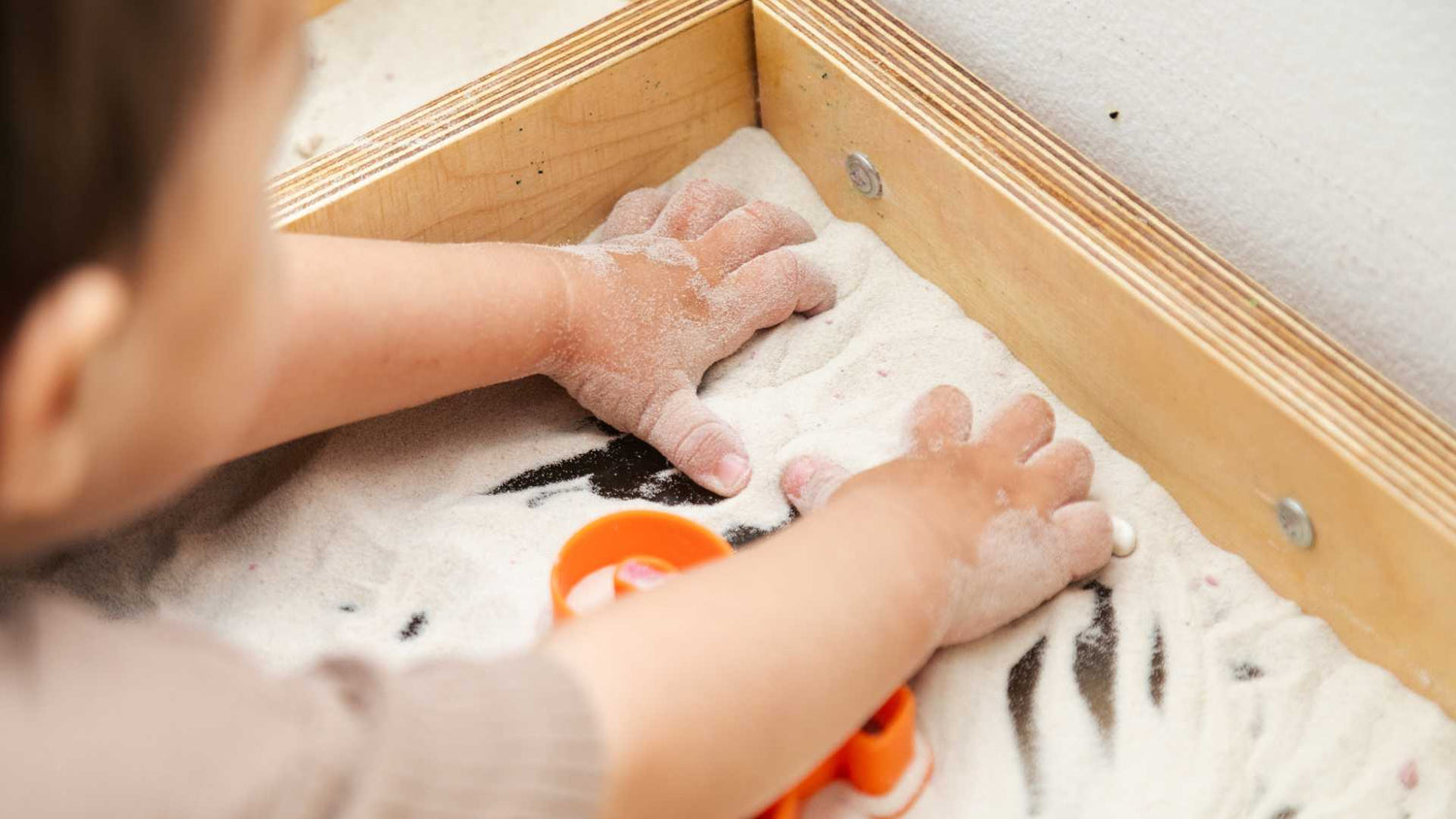Fine motor skills are the unsung heroes of childhood development, quietly shaping our little ones' ability to navigate the world around them. From buttoning up a favourite jumper to wielding a crayon like a mini Picasso, these intricate hand and finger movements are the building blocks of independence. But what happens when your child struggles with these seemingly simple tasks?
Don't fret - we're here to explore the world of fine motor skills and discover how to nurture them in your unique little human.
In this article, we'll cover:
- Understanding fine motor skills and their importance
- Identifying signs of poor fine motor skills
- When and how to seek professional evaluation
- Fun at-home activities to improve fine motor skills
- Useful adaptive tools and equipment
- Tips for incorporating fine motor skill practice into daily routines
Whether you're a parent, caregiver, or simply curious about child development, this guide will equip you with the knowledge and strategies to support a child's fine motor skill journey. So, let's dive in and unravel the intricate world of tiny fingers!
Understanding fine motor skills

Fine motor skills are the precise movements of our hands and fingers that allow us to manipulate small objects and perform detailed tasks. These skills are crucial for a child's development in the early years, impacting everything from self-care routines to academic performance.
Imagine trying to tie shoelaces or write your name without these skills - it's like attempting to paint a masterpiece while wearing oven mitts!
For our little ones, mastering fine motor skills is a gradual process that begins in infancy and continues to develop throughout childhood. It's a journey filled with triumphs (hello, first successful spoon-to-mouth manoeuvre!) and challenges (why won't this zip cooperate?). As caregivers, our role is to provide the right environment and tools to support this development.
Identifying signs of poor fine motor skills
While every child develops at their own pace, there are some telltale signs that might indicate a struggle with fine motor skills. If you do suspect, ask yourself:
- Does your child struggle to catch a ball or consistently miss when reaching for objects?
- Are buttons, zips, and puzzle pieces proving to be formidable foes?
- Does colouring within the lines or using scissors seem like an insurmountable task?
- Has your child developed a sudden aversion to drawing or playing with small toys?
- Are those adorable scribbles more of a jumbled mess than usual?
If you find yourself nodding 'yes' to one or more of these questions, don't panic. Remember, these signs don't necessarily mean there's a problem. Children develop at different rates, and what's challenging today might be a breeze tomorrow.
However, if you notice persistent difficulties, it might be time to seek some expert advice...
Seeking professional evaluation
If you're concerned about your child's fine motor skills, don't hesitate to reach out to a professional. Occupational therapists are the superheroes of the fine motor world, armed with the knowledge and tools to assess and address these challenges.
An occupational therapist can:
- Conduct a comprehensive evaluation of your child's fine motor skills
- Identify specific areas of difficulty
- Create a tailored plan to improve these skills
- Provide strategies for at-home support
- Recommend adaptive tools if necessary
Remember, seeking help isn't a sign of failure - it's a proactive step towards supporting your child's development.
At-home activities to improve fine motor skills

While professional support can be invaluable, there's plenty you can do at home to help your child build those all-important fine motor skills. The best part? Many of these activities are disguised as play, so your little one won't even realise they're working on their development!
- Squishing, rolling, and shaping playdough is a fantastic workout for little fingers. Challenge your child to create miniature sculptures or practice cutting shapes with plastic scissors or a safe toddler knife - allowing children to safely chop and slice playdough without the risk of cutting their skin.
- Thread pasta onto shoelaces, create colourful bead necklaces, or try lacing cards. These activities improve hand-eye coordination and finger dexterity.
- Start with thick paper and gradually move to thinner materials. Cut along straight lines, then progress to curves and zigzags.
- Painting, drawing, and colouring aren't just fun - they're excellent for developing fine motor skills. Experiment with different tools like crayons, markers, and paintbrushes.
- Involve your child in daily tasks like pouring their own drink, helping to set the table, or sorting laundry by colour. These activities build skills and confidence.
The key is to keep it fun and praise effort over perfection. Each wobbly line or lopsided playdough creation is a step towards mastery!
Utilising adaptive tools and equipment
Sometimes, a little extra help can make a world of difference. Adaptive tools are designed to bridge the gap between a child's current abilities and the task at hand. They're not cheating - they're clever solutions that build confidence and independence. Inclusive products are designed for every child, helping nurture independence whether they have typical development, or face challenges such as motor skill difficulties.
Some helpful tools include:
- Chunky crayons or markers: Larger writing tools are easier for small hands to grasp and manipulate.
- Adapted scissors: Spring-loaded or loop scissors can make cutting tasks more manageable.
And let's not forget about cutlery designed specifically for little hands. Our range of toddler cutlery is expertly crafted to support the development of fine motor skills during mealtimes. Their ergonomic design encourages the pincer grip, setting the stage for future pencil control and handwriting skills. Plus, they make mealtime less of a battlefield and more of an opportunity for independence and confidence-building.
Incorporating fine motor skills into daily routines

The beauty of fine motor skills is that they're not confined to specific activities or therapy sessions. Every day is filled with opportunities to practice and refine these skills. By weaving fine motor challenges into your daily routine, you're providing consistent, low-pressure practice that can yield big results.
Here are some ideas to get you started:
- Encourage your child to dress themselves, tackling buttons, zips, and shoelaces (it might take a bit longer, but the sense of accomplishment is worth it).
- Let your child pour their own drink, spread butter on toast.
- Have your child squeeze toothpaste onto their brush or turn pages in a bedtime story.
- Sorting toys by colour or size, picking up small objects with tongs, or using a spray bottle filled with plain water to ‘clean’ surfaces are all great fine motor workouts.
- Involve your child in age-appropriate cooking tasks like stirring, measuring, or using cookie cutters.
Remember, progress might be slow, and there will likely be spills and messes along the way. Embrace the chaos as part of the learning process, and celebrate every small victory.
Tiny fingers, big triumphs

Helping a child with poor fine motor skills is a journey of patience, creativity, and celebration of small victories. By understanding the importance of these skills, recognising potential challenges, and implementing a mix of professional guidance and at-home activities, you're setting your child up for success. Remember, every wobbly line drawn, every button fastened, and every spoonful of food successfully navigated is a step towards independence and confidence.
So, armed with your newfound knowledge and a toolbox of activities (and perhaps some toddler cutlery), you're ready to embark on this fine motor adventure. Who knows? Your little one might just surprise you with their progress.
Today’s clumsy grip could be tomorrow's masterpiece in the making!



Leave a comment
This site is protected by hCaptcha and the hCaptcha Privacy Policy and Terms of Service apply.